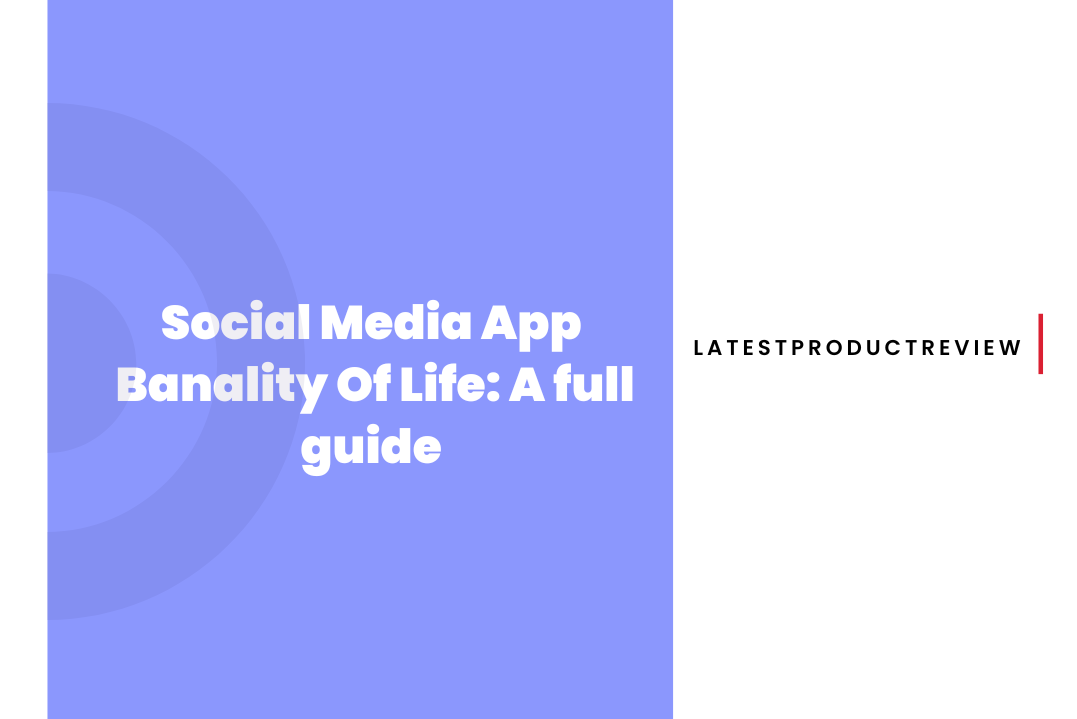Social media platforms have become ubiquitous in our daily lives, offering unparalleled convenience and connectivity.
However, beneath the veneer of these seemingly harmless apps lies a darker truth the potential for significant detrimental effects on our mental health and well-being.
This blog post delves into the banality of life on social media, exploring its various negative aspects and the profound impact they can have on our lives.
From the insidious grip of loneliness and the erosion of authenticity to the insidious spread of misinformation and the addictive nature of dopamine-driven engagement, this article aims to shed light on the hidden perils that lurk within the seemingly innocuous realm of social media.
Additionally, we will delve into the critical issues of data privacy and security, examining the risks associated with sharing personal information online and the measures we can take to protect ourselves.
Social media and loneliness
In the realm of social media, amidst the kaleidoscope of connections and the illusion of constant engagement, a disquieting shadow emerges the spectre of loneliness.
Despite its promise of bridging divides and fostering camaraderie, social media has inadvertently become a breeding ground for isolation and emotional detachment.
Studies have consistently revealed a disconcerting correlation between excessive social media usage and heightened sentiments of loneliness and alienation, painting a paradoxical picture of connectivity devoid of genuine human connection.
At the heart of this quandary lies the insidious nature of comparison. The carefully curated lives showcased on social media platforms can inadvertently engender a relentless cycle of self-criticism and envy.
Individuals may find themselves perpetually comparing their perceived inadequacies to the seemingly flawless facades of others, leading to a profound sense of discouragement and loneliness.
This relentless pursuit of an unattainable ideal can erode self-esteem and exacerbate feelings of isolation, leaving individuals trapped in a labyrinth of self-doubt.
Compounding this issue is the deceptive illusion of connection that social media perpetuates. While individuals may accumulate hundreds or even thousands of online “friends,” the quality and depth of these relationships often pale in comparison to real-world interactions.
The superficiality of these connections can leave individuals feeling emotionally disconnected and yearning for authentic human intimacy.
Furthermore, the pervasive fear of missing out (FOMO) adds another layer to the loneliness epidemic. The constant pressure to remain perpetually engaged with social media, lest one be ostracized from the virtual community, can be psychologically taxing.
This relentless pursuit of external validation can fuel a sense of inadequacy and isolation, as individuals struggle to keep pace with the seemingly endless stream of updates and activities.
In addition, social media can inadvertently hinder the development of essential real-world social skills. The ease of online interactions may dissuade individuals from engaging in face-to-face communication, resulting in a gradual erosion of interpersonal skills.
This diminished ability to connect authentically can further exacerbate feelings of loneliness and isolation, creating a vicious cycle that perpetuates the very emotions that social media was initially designed to alleviate.
Loss of authenticity
Social media can lead to a loss of authenticity, as people are presented with a curated and idealized version of others’ lives. This can lead to feelings of inadequacy and the pursuit of an unattainable image. People may also feel pressured to conform to societal standards and trends rather than expressing their true selves.
The constant comparison to others on social media can lead to feelings of inadequacy and self-doubt. Seeing others’ seemingly perfect lives can create the illusion that everyone else is happier, more successful, and more attractive. This can lead to a negative self-image and a sense of not being good enough.
In an attempt to keep up with the perceived standards of social media, people may resort to presenting a false or exaggerated version of themselves. This can lead to a loss of authenticity and a sense of inauthenticity. People may feel like they are constantly performing for an audience and that they can’t be themselves.
The pursuit of an unattainable image can also lead to anxiety and depression. Trying to live up to unrealistic standards can be exhausting and discouraging. This can lead to feelings of hopelessness and a sense that one will never be good enough.
Social media can also create a culture of conformity. People may feel pressured to conform to societal standards and trends in order to fit in and be accepted. This can stifle creativity and individuality and prevent people from expressing their true selves.
Overall, social media can lead to a loss of authenticity, as people are presented with a curated and idealized version of others’ lives. This can lead to feelings of inadequacy and the pursuit of an unattainable image. People may also feel pressured to conform to societal standards and trends rather than expressing their true selves.
Misinformation and fake news
spread rapidly on social media platforms, often due to the ease of sharing and the lack of editorial oversight. False information can be intentionally created and disseminated for various reasons, such as political or financial gain, or simply to cause harm.
The spread of misinformation can have serious consequences, including the erosion of trust in institutions, the spread of harmful beliefs, and the incitement of violence.
Social media platforms play a significant role in the spread of misinformation and fake news. The algorithms used by these platforms often prioritize engagement over accuracy, leading to the spread of sensational and misleading content.
Additionally, the use of bots and fake accounts can amplify the reach of false information, making it difficult for users to discern truth from fiction.
To protect themselves from being misled, users should be critical of the information they encounter on social media. They should consider the source of the information, check for corroborating evidence, and be aware of common misinformation tactics.
Social media platforms also have a responsibility to combat misinformation, by implementing stricter fact-checking measures and promoting media literacy.
It is important to note that not all information on social media is false. There is a wealth of valuable and accurate information available, but users must be discerning and take steps to verify the information they encounter.
By being critical consumers of information, users can help combat the spread of misinformation and fake news, and promote a healthier and more informed online environment.
Addiction and dopamine
Social media addiction is a serious problem that can have a negative impact on our mental health and well-being. This section will explore the potential harms of social media addiction, including how social media platforms use algorithms to create a cycle of engagement and reward, the role of dopamine in social media addiction, and the impact of excessive social media use on sleep patterns.
Social media platforms are designed to be addictive. They use algorithms that track our behavior and show us content that is likely to keep us engaged. This can lead to a cycle of constantly checking our phones and feeling anxious or restless if we’re not online.
Dopamine is a neurotransmitter that is associated with pleasure and reward. When we use social media, our brains release dopamine, which makes us feel good. This can lead to us using social media more and more, even if it’s not good for us.
Excessive social media use can also have a negative impact on our sleep patterns. When we use social media before bed, it can make it harder to fall asleep and stay asleep. This is because the blue light emitted from our screens can disrupt our circadian rhythm, which is our body’s natural sleep-wake cycle.
Social media addiction is a real problem that can have serious consequences for our mental and physical health. It’s important to be aware of the risks and to take steps to limit our social media use.
Data privacy and security
are major concerns for social media users. Social media platforms collect vast amounts of personal data from their users, including names, email addresses, phone numbers, and even biometric data.
This data is often collected without the user’s explicit consent and is often shared with third-party advertisers and other companies. This can lead to targeted advertising, manipulation, and even identity theft.
Social media platforms are also vulnerable to hacking and data breaches. In recent years, there have been several high-profile cases of social media platforms being hacked, resulting in the theft of millions of user records. This data can be used for a variety of malicious purposes, including identity theft, fraud, and blackmail.
Conclusion for Social Media App Banality Of Life
In addition, social media platforms often lack transparency and accountability in their data handling practices. They often do not provide users with clear and concise information about how their data is collected, stored, and shared. This makes it difficult for users to make informed decisions about how their data is used.
The potential harms of social media on data privacy and security are significant and should not be ignored. Social media users should be aware of the risks associated with using social media and should take steps to protect their data. They should also demand more transparency and accountability from social media platforms regarding their data handling practices.





